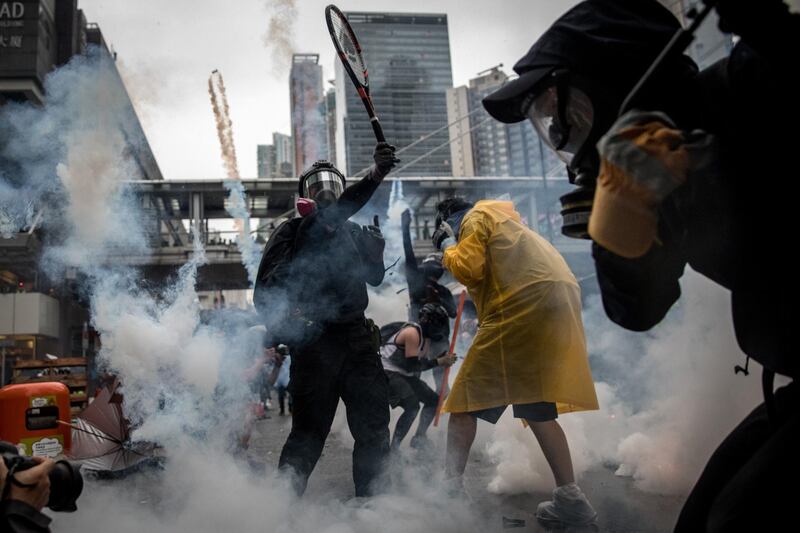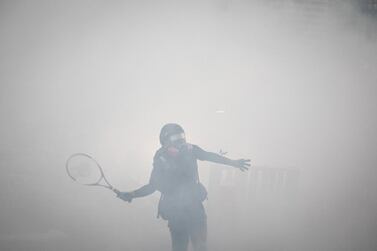China threatened to crack down severely on "violent terrorist activities" on Tuesday as Hong Kong's chief executive met protesters about the pro-democracy protests gripping the city.
China's public security minister, Zhao Kezhi, visiting Guangdong province near Hong Kong, said China will crack down on violent terrorist activities and firmly safeguard its political security.
In a statement issued by his ministry, Mr Kezhi was quoted as saying China would rigorously fend off and crack down on all subversive and terrorism activities to ensure the security and stability of the country.
Hong Kong, a Chinese territory, has been hit by more than two months of youth-led protests that have often ended in clashes with police. Protests began over a proposed extradition bill, but widened into a more general opposition to heavy-handed police action and the rights of Hong Kong citizens.
The extradition proposal fuelled concern that China is chipping away at the separate legal system and rights that semiautonomous Hong Kong has under a "one country, two systems" framework. Organisers estimate marches against the legislation have drawn more than a million people.
Protesters have also disrupted train stations and the airport, surrounded and spray-painted slogans on police stations and broken into and vandalised the legislative chamber. Not all of the protesters resort to confrontation, but those that do say it is needed because the government is not responding to peaceful demonstrations.
More than 80 people were arrested last weekend after protesters occupied city streets. They built barriers across roads and threw bricks and gasoline bombs to block police, who used teargas to drive them away.
Mr Kezhi’s statement comes as Hong Kong’s leader Carrie Lam attempted to calm tensions by meeting a group of young protesters.
Ms Lam said she had explained the government’s position at the Monday meeting, which was closed-door and unannounced, seemingly refusing to budge on any of the protesters’ demands.
She disputed complaints that her government is ignoring the protesters, whose demands include the withdrawal of an extradition bill, an independent inquiry into what they believe is excessive use of force by police at the demonstrations, and democratic elections.
“It is not a question of not responding,” she told reporters before a weekly meeting with her executive council. “It is a question of not accepting those demands.”
“If violence continues, the only thing that we should do is to stamp out that violence through law enforcement actions,” she said.
She dismissed any suggestion of her resignation, saying a responsible chief executive should continue “to hold the fort and do her utmost to restore law and order in Hong Kong”.
Meanwhile, China said it rejects a statement by the leaders of the G7 nations, who called for the avoidance of violence in Hong Kong and affirmed the importance of the 1984 Sino-British agreement that gave the city its semi-autonomous status.
"We expressed, collectively, deep concern about what is happening in Hong Kong," British Prime Minister Boris Johnson said after the G7 meeting in France. "We remain collectively committed to the 'one country, two systems' framework," he said.
Chinese foreign ministry spokesman Geng Shuang said in Beijing that no foreign government has the right to intervene in Hong Kong in what he called an internal Chinese issue. "We urge the members of the G7 countries not to meddle in other's affairs," he said.






